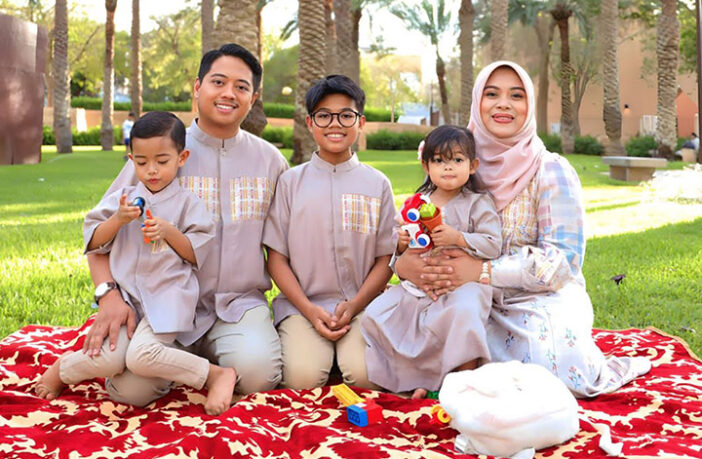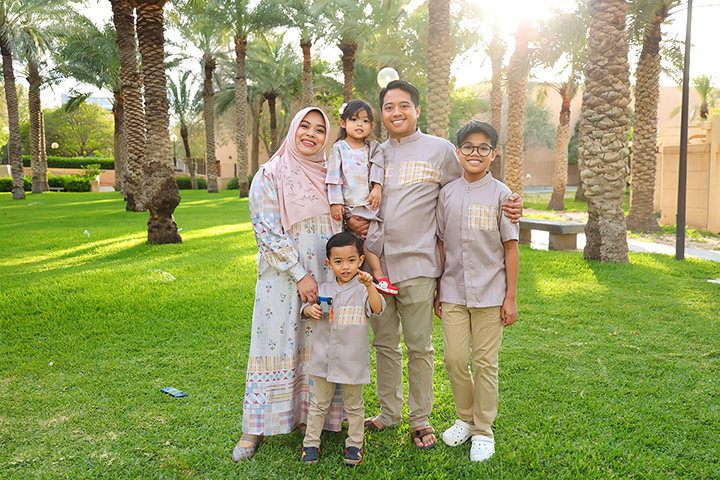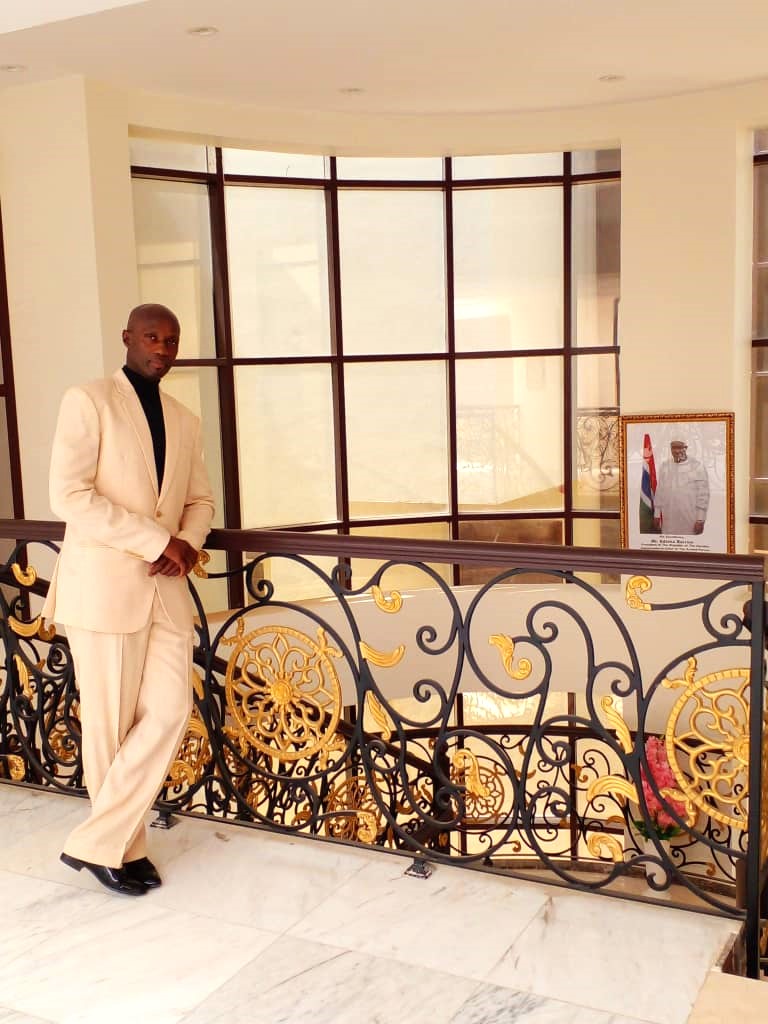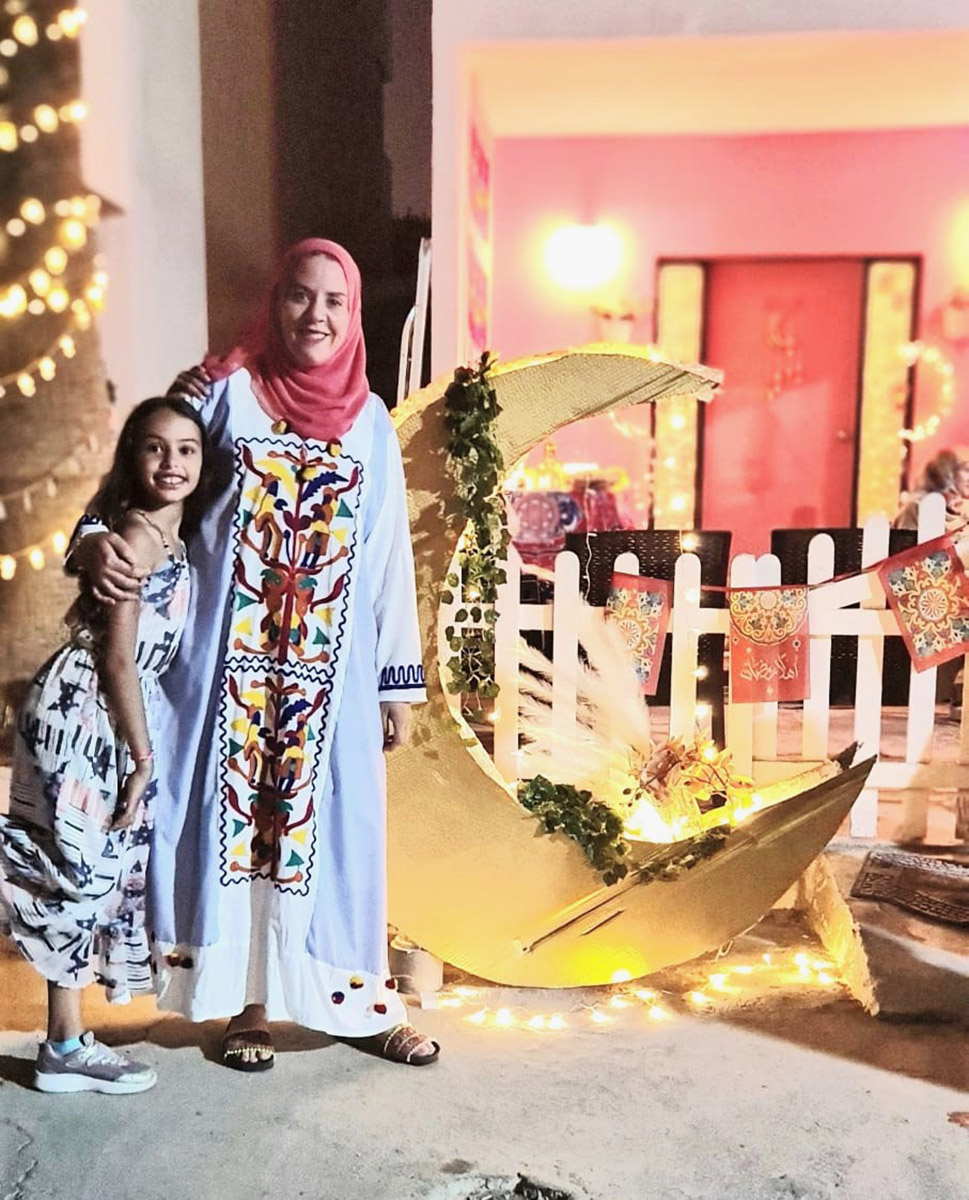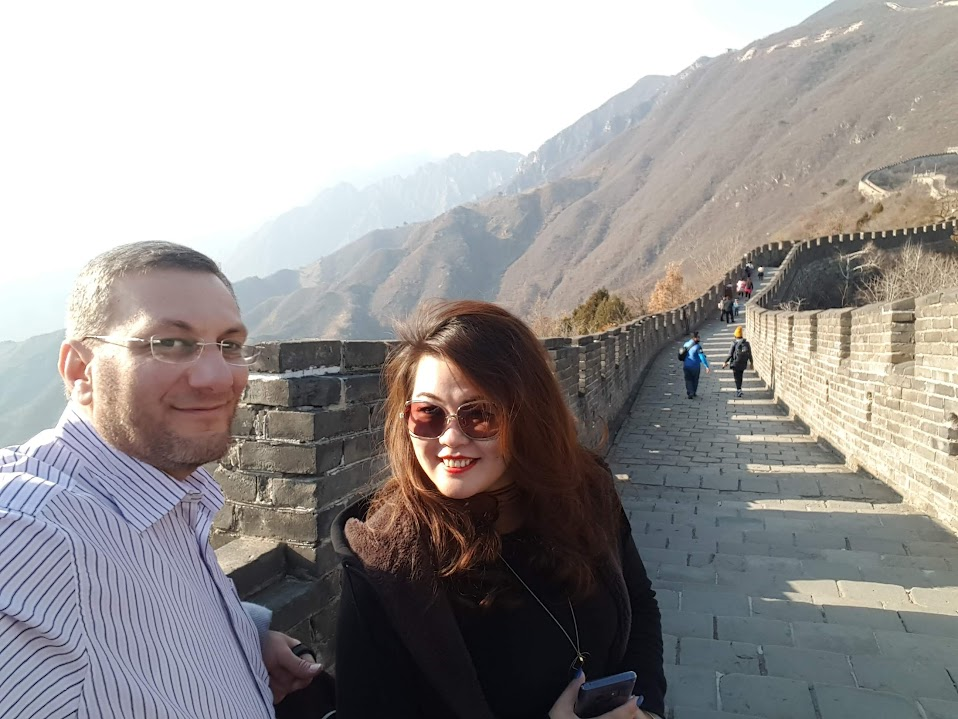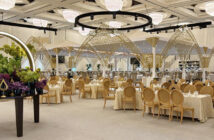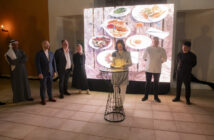Ramadan, the holy month in Islam, holds immense significance for Muslims worldwide. This month-long observance involves fasting from dawn until sunset, abstaining from food, drink, smoking, and other physical needs during daylight hours. It’s a time for spiritual reflection, self-discipline, increased devotion, and acts of charity.
For expatriates living in Saudi Arabia, Ramadan often presents a unique opportunity to immerse themselves in the local culture and experience the spirit of solidarity and community that permeates the month. The staff of various embassies in Riyadh share what Ramadan means to them and how they celebrate it in Saudi Arabia, their second home.
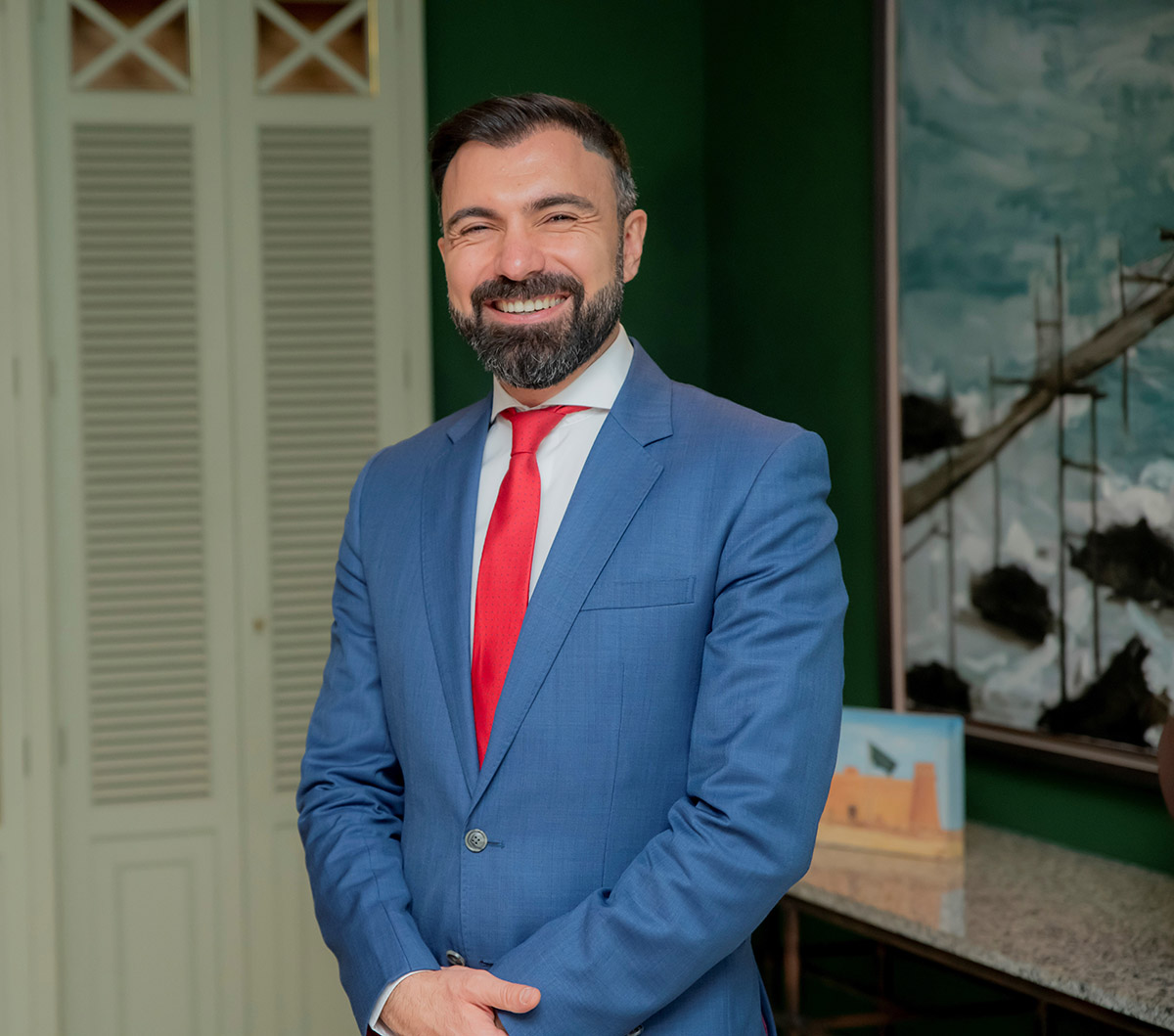
Sufyan Barhoum Najjar
Protocol Officer, Embassy of Spain
What is Ramadan to you?
Ramadan, to me, embodies a profound spiritual journey of reflection, renewal, and connection. It is a time of heightened awareness, where the soul is invited to seek closeness to the divine through fasting, prayer, and acts of charity. Ramadan is a sacred opportunity for self-discipline, selflessness, and self-discovery. It is a reminder of the blessings of gratitude, empathy, and compassion, fostering a deeper understanding of oneself, one’s community, and one’s Creator. Ramadan is a transformative experience that nourishes the spirit, purifies the heart, and strengthens the bond between the individual and the divine. It is a sacred gift that reminds us of the beauty of surrender, humility, and devotion, ultimately leading to spiritual growth and inner peace.
How do you celebrate Ramadan in your own homes?
In Spain, Ramadan takes on a unique hue, woven from the rich tapestry of its diverse Muslim community, with a significant proportion tracing their roots to North Africa, particularly Morocco. For me, a Spanish citizen with Syrian roots living in Madrid for so many years, the experience of Ramadan in Spain was a beautiful amalgamation of tradition and cultural exchange. Attending Salat Al-Tarawih prayers at the Islamic Culture Center in Madrid, I found myself amidst a congregation of Muslims from all around the world. This cultural mingling not only lent a new dimension to my Ramadan observance but also underscored the significance of communal gatherings in fostering unity and solidarity. Beyond its role as a place of worship, the Islamic Culture Center, inaugurated in 1992 by His Majesty King Juan Carlos and Queen Sofía, alongside His Royal Highness Prince Salman Bin Abdulaziz, on behalf of His Majesty King Fahad Bin Abdulaziz, serves as a vital hub for Muslim communities in Madrid, offering a space for spiritual reflection, socialization, and collective celebration during the holy month. Through these gatherings with our fellow Muslims in Spain, I found solace in the shared spirit of devotion and camaraderie, transcending cultural boundaries to embrace the essence of Ramadan in all its diversity and splendor.
What do you look forward to in the upcoming Ramadan this year?
In my eighth Ramadan in Saudi Arabia since arriving from Madrid to serve at the Spanish Embassy as a Protocol Officer, I have transitioned from a multicultural country to an even more diverse one. Throughout these years, I have had the privilege of traversing numerous countries vicariously through their representatives residing in Saudi Arabia. Ramadan has been an extraordinary conduit for this cultural exploration. Amidst the breaking of fasts, or Iftars, I have found myself surrounded by individuals from diverse nationalities, all convened around the enchanting table of Iftar. It has been a revelation to witness non-Muslims partaking in the fasting tradition, joining us at the table, and sharing in the magical moment when we hear the call to Almaghrib prayer. These experiences have become cherished traditions during my time here, ones I have no intention of altering anytime soon.
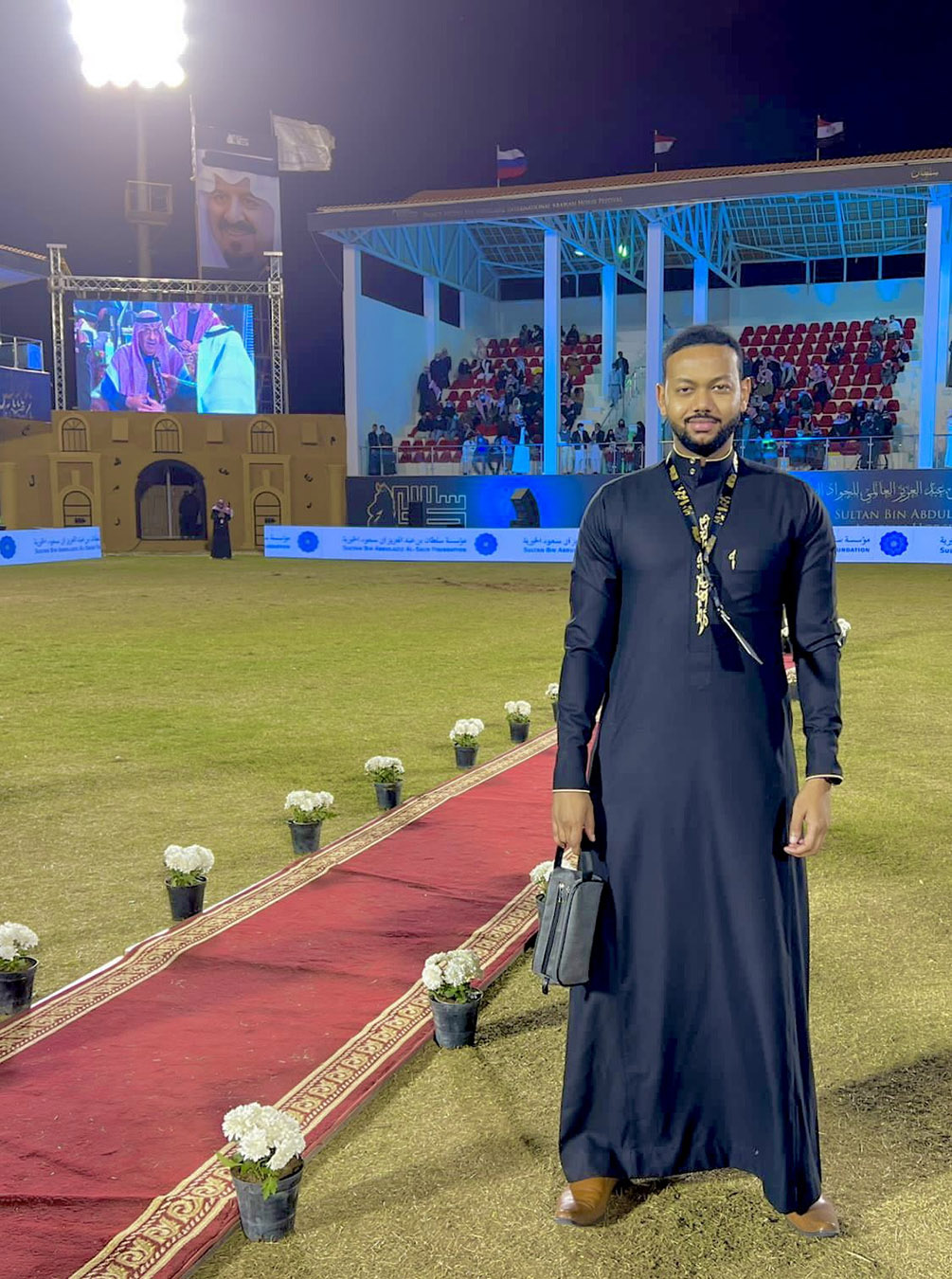
Imad Ali
Protocol Liaison Officer and Translator, Embassy of Austria
What is Ramadan to you?
To me, Ramadan is an opportunity to abandon bad habits and foster certain attitudes and values such as discipline, the spirit of unity, willpower, patience, empathy, tolerance, and social awareness.
Ramadan is a truly remarkable month, in everything from the soothing sound of late-night prayers to the lanterns and decorations of the busy street markets and the mouthwatering dishes. And let’s not forget the family gatherings on Iftar and Suhoor.
How do you celebrate Ramadan in your own homes?
As some of my siblings work in different cities in Saudi Arabia, Ramadan is one of the most unique occasions that allows us to gather and celebrate at my mum’s house. During the pre-Iftar period and after reciting the Quran, my mum would give us some duties in the kitchen shortly before Maghrib call such as cutting salad, cracking the eggs, preparing the table, delivering homemade dishes to the neighbors, and so on. This group effort is one of the flavors of Ramadan.
Some other days, she would designate one of us to cook and to be in charge of the Iftar. With me burning some pancakes and struggling to scrape them off the pan, my mum is always around to save the day from any unexpected mishaps.
During Iftar, we usually break our fasting by having dates, water, and coffee. After the Prayer, we have the main Iftar meal. As a Sudanese born in KSA, our Iftar is a combination of Sudanese and Saudi cuisines such as Sambosa, Ful Gilabah, Assedah, Qurasah, Qamar Al-Din, Kabsa, Zalabya, Kunfeh, Sobia (special Saudi Drink), Hilw Mur (traditional Sudanese Drink), and hibiscus juice.
During the evening period, we normally perform Taraweeh prayer, watch Ramadan TV shows, play football or volleyball, and enjoy late-night Suhoor.
What do you look forward to in the upcoming Ramadan this year?
Inspired by the ideas of some of my friends, we are looking forward to participating this upcoming Ramadan in Iftar campaigns by preparing and distributing meals to the underprivileged, street sweepers, and road travelers to break their fasting. Ramadan is all about sharing, it is great to feel a sense of togetherness and care for each other.
On the other hand, as civil war continues in my home country, fighting has resulted in devastating consequences. Millions of people are suffering from the world’s largest displacement crisis and facing emergency levels of hunger. Ramadan this year will be different in Sudan. I am endeavoring to contribute, as much as I can, to ease the horrors of war on my people.
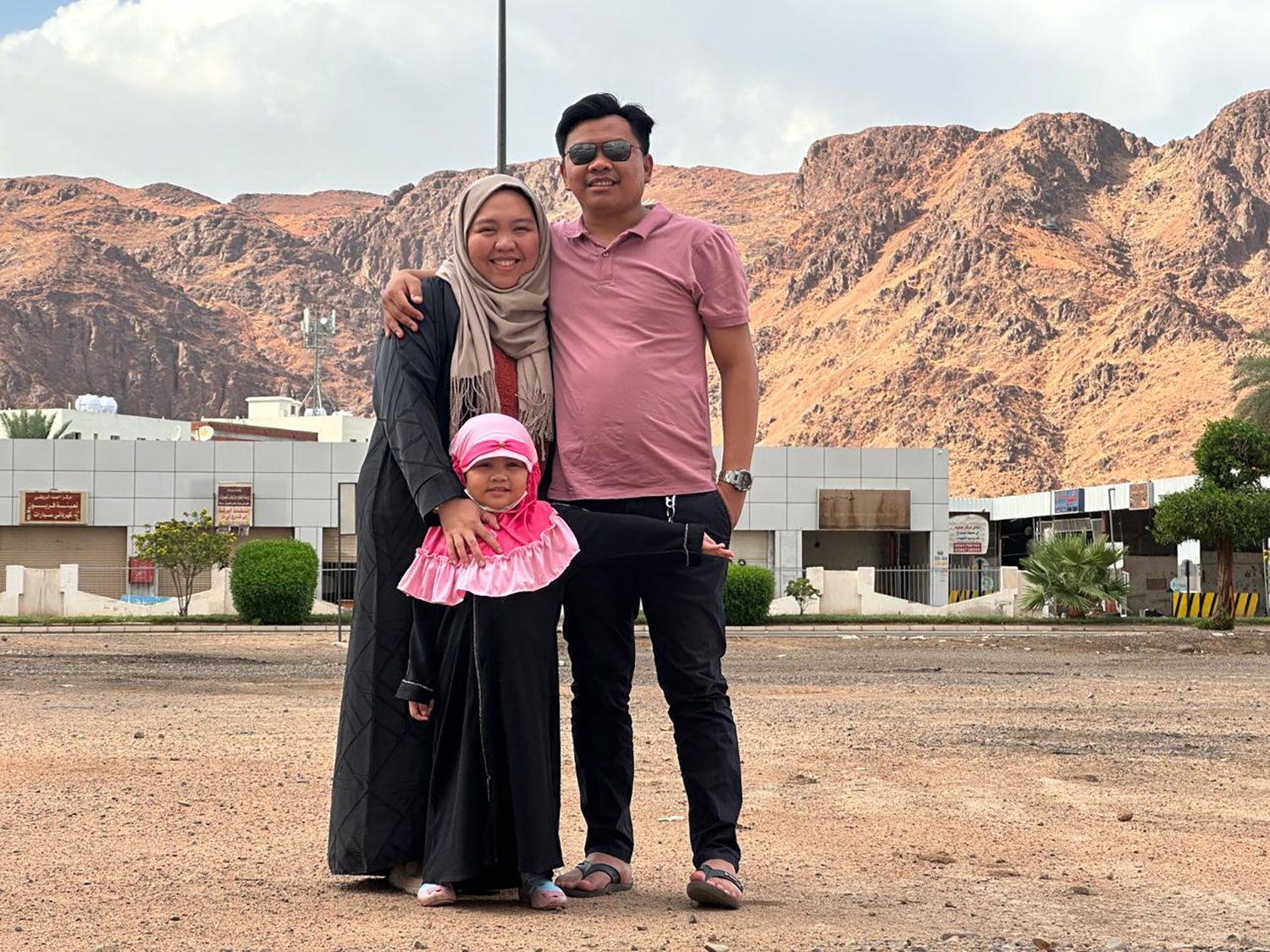
Fatima Shanana M. Haron-Macalawi
Consular Assistant, Legal Officer and Attaché, Embassy of the Philippines
What is Ramadan to you?
The blessed month of Ramadan is a time to recharge and strengthen our connection with our Creator. It is a time for sacrifice and enduring hunger and lack of sleep from long hours of fasting and late-night prayers; a time for abstinence from worldly activities and focus on multiplying one’s acts of worship; and a time for reflection to ponder upon Allah’s blessings of life, health, and family. Ramadan is also the season of sharing and spending time with your family. It’s the time of the year when moments of family bonding double as acts of worship.
How do you celebrate Ramadan in your own homes?
My family and I would share meals every Suhoor and Iftar. Among our favorites are Kabsa, Shawaya, Kunafa, and Luqaimat. In those moments, we get to appreciate more the blessings at our table and each other’s company. We would also go to a nearby Masjid to perform ‘Isha and Tarawih prayers, listen to the comforting recitations of our beloved Imams, and ponder upon the beautiful words of Allah. And finally, during the ‘Eid holidays, we would perform Umrah in Makkah and visit the Prophet’s Mosque in Madinah. Alhamdulillah.
I am truly grateful and blessed to be here in the Kingdom and celebrate Ramadan in an Islamic community where a Muslim like me can easily practice their ‘ibadah. One is assured that the food is 100% halal, and joining congregational prayers is very convenient because mosques are everywhere.
What do you look forward to in the upcoming Ramadan this year?
Ramadan here in Saudi Arabia is truly blissful and memorable! This 2024 will be the third Ramadan for me and my family in the Kingdom. As Saudi Arabia is very welcoming to visitors, we are very much looking forward to our families visiting from the Philippines so they can perform Umrah and also experience Ramadan here in Mamlaka.
It is also that time of the year when people are extra-giving and charitable. My family and I would receive water, ‘ajwa dates, and laban from random strangers and be greeted warmly with Salaam. We really appreciate this culture, and we are inspired to do the same and give back this upcoming Ramadan.
A.M. Sidqi
First Secretary for Socio-cultural and Information Affairs, Embassy of Indonesia
What does Ramadan mean to you?
This year marks the third Ramadan my family and I will observe in Saudi Arabia. For us, Ramadan has always been a profoundly special month, a sentiment that has remained constant throughout our 15 years of moving from one country to another—from Indonesia to Australia, Syria, Switzerland, and now Saudi Arabia. No matter the country in which we find ourselves, Ramadan retains its unique charm and significance. My family and I view Ramadan as a celebration of virtue, a time when everyone aspires to their highest selves, embracing good deeds with a fervor that transforms the ordinary into the extraordinary.
How do you celebrate Ramadan in your home?
As the most populous Muslim-majority country in the world, Indonesia embraces Ramadan with unparalleled fervor and festivity. Despite its majority Muslim population, Ramadan traditions in Indonesia are also enriched by the country’s religious plurality.
In Bali Island, predominantly Hindu, the local Muslim community welcomes Ramadan with a tradition known as “Megibung”, meaning to share, and involves sitting in circles and sharing a meal together from a communal tray. This practice of welcoming Ramadan is mirrored across various Indonesian islands under different names, such as “Munggahan” in West Java and “Nyadran” in Central Java. Coming from West Java, I am accustomed to the “ngabuburit” tradition, where people enjoy pre-sunset outings to explore markets and food stalls while waiting for iftar.
In Riyadh, my family and I bring these traditions into our home. We decorate our house with Ramadan-themed decorations and accessories to mark the arrival of the holy month, ensuring our children feel the festive spirit. As the holy month approach, we gather for “munggahan,” sometimes joining or hosting gatherings with the Indonesian community here in Riyadh. For “ngabuburit,” we often venture out to explore new restaurants and cafés for iftar. Riyadh’s diverse cuisine and dining scene offer us numerous options to enjoy this tradition away from home.
Additionally, my family and I partake in “Ramadan safari” for Tarawih prayers. This involves moving from one mosque to another to perform the Tarawih prayers, starting from Masjid Al Kindi in the Diplomatic Quarter to Masjid Al Rajhi in Eastern Riyadh, then on to Masjid King Khalid in Ummul Hammam, Masjid King Abdullah in Ouroba Road, and others.
These Ramadan activities are beautiful ways to connect with the community and to experience the joy and community spirit of Ramadan in Riyadh.
What are you looking forward to in the upcoming Ramadan this year?
Observing Ramadan in Saudi Arabia has been the most memorable experience of my life. For all believers worldwide, performing Umrah during Ramadan is a deeply cherished goal, rewarded as equally meritorious as performing Hajj alongside the Prophet Muhammad (peace be upon him). Working in Saudi Arabia has made it more feasible to undertake Umrah during Ramadan compared to attempting it from outside the country. Thankfully, each year for the past three years while working in Riyadh, I have been blessed to perform the Ramadan Umrah. God willing, in this final year of my tenure in Riyadh, I hope to undertake this spiritually enriching journey once more.
Ambassador Abubacarr Jah
Head of Chancery, Embassy of The Gambia
What is Ramadan to you?
Ramadan is the 9th month of the Islamic Calendar in which Muslims all over the globe engage in a collective month of worship of the one and only true, God (Allah).
To me and as it is to many Muslims, it’s a month of constant worship, fasting, Qiyams, Nawafels, charities, and all acts of Ibadats and goodness. Besides, it is one of the fundamental Pillars of Islam that must be observed by all Muslims.
How do you celebrate Ramadan in your own homes?
Ramadan is synonymously observed and celebrated by all Muslims. In the evening we break our fast with light meals and head to Masjid for Maghrib Salah and return home for rest before returning to Masjid for Esha followed by Nawafel prayers and this routine continues until the end of Ramadan which is then marked by the Edul Fetr Salah.
What do you look forward to in the upcoming Ramadan this year?
I look forward to the rewarding rituals of Ramadan, the community spirit, kindness to all creations of Allah and achievement of abundant blessings of Allah.
Heba Deeb
Business and Trade Adviser, Embassy of Norway
What is Ramadan to you?
Ramadan is a holy month in the Islamic calendar, observed by Muslims worldwide as a month of fasting, prayer, reflection, and community. It is a time for spiritual growth, self-discipline, and increased devotion to worship. It is also a time for increased charity, empathy, and coming together with family and friends. Overall, Ramadan for me is a time of spiritual renewal and strengthening one’s relationship with God.
How do you celebrate Ramadan in your own homes?
We celebrate Ramadan at my home in various ways to make the most of this holy month. Celebrating Ramadan at home involves a combination of spiritual activities, family time, and acts of kindness to make the most of this blessed month.
What do you look forward to in the upcoming Ramadan this year?
This month is very sacred for us as we feel very close to God with all the prayers and Quran reading. I look forward to this Ramadan and I hope to spend more time in prayer and reflection this year.
Jalal Obeidat
Head of Commercial Section, Embassy of Peru
What is Ramadan to you?
Ramadan is a month full of spirituality and purity. Fasting encourages people to feel the poor and be more kind to all people. It also brings families and friends together.
I always feel happy and proud to see young men and women volunteering to donate and distribute Iftar meals in the streets, for those who are late to reach their destination. Others volunteer their time, effort, and resources for various good deeds, including visiting patients at hospitals or helping strangers.
How do you celebrate Ramadan in your own homes?
Being born and raised abroad, I haven’t lived in my home country long enough, but I guess it is not much different from the way it is celebrated in Saudi Arabia. The main features of celebrating Ramadan is reciting more of the Holy Quran every day, Taraweeh prayers, and family gatherings.
The diet during the holy month will definitely be different as well. Some types of desserts and drinks appear only during Ramadan, I don’t know why!
What do you look forward to in the upcoming Ramadan this year?
I hope that all people around the world have peace and prosperity.
On the personal level, I miss the gathering of the whole family which we used to have years ago.
Finally, the fasting experience is an opportunity for everyone to be a better person, and to treat others with kindness.

